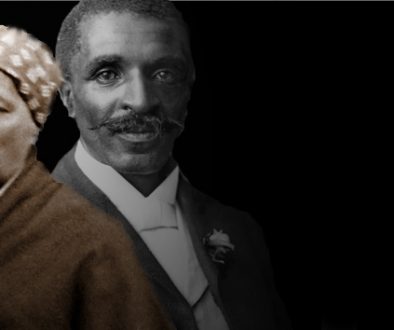6 Principles for Using I.T. Volunteers in the Church.
I thought that, by now, the concept of using volunteers in the Information Technology (I.T.) areas of the church would be irrelevant. I am encouraged to hear an increasing amount of stories where churches trust some of their most critical I.T. operations to volunteers. However, many church leaders still struggle with this concept so I thought that I would address a couple issues that I have experienced over the years and “volunteer” some principles that have helped me gain a measure of success helping volunteers use their technical gifts and skills in the church.
Principle 1. An Unrelenting Commitment to a Biblical Volunteer Paradigm.
Let’s face it, Managing people is hard work. Even if a paycheck offers a primary motivation to complete a job, the process of instructing, developing , coaching, communicating, inspiring and over-all supporting requires a considerable amount of energy. I believe that leading and managing volunteers takes even more time and energy than the energy required to lead and manage a paid staff. This can make it difficult to see any immediate return on all the time and effort church leaders invest in building volunteer teams to take on significant tasks. With this in mind, I submit that if using a persons natural and spiritual gifts to support the initiatives of the church is a basic act of obedience that all who claim to follow Christ should fulfill, then there is no reason why churches shouldn’t have people who volunteer their I.T. skills in the church. Using Acts 6:1-7 as an example, I believe that it is good to have I.T. volunteers take up the tasks of supporting technology services in the church so that Bible teachers, many of whom are volunteers themselves, don’t have to “neglect the word of God,” to fix computers. If the church is particularly large then perhaps full or part-time staff is necessary to support the operations of the church during daytime hours. Still, I believe that 1 Corinthians 12, Romans 12 and 1 Peter 4 offer us clear direction and a clear example for people to follow as they use whatever spiritual gifts and natural abilities they might be blessed with to further the initiatives of God. It is simply a normal part of being a Christ follower and because of this I believe that Church leaders need to have an unrelenting commitment to this Biblical volunteer paradigm.
Principle 2. A High Calling and a High Motivation.
Many individuals, including myself, hold a strong conviction that there is a community of people all over the earth who believe that:
- Jesus is the Son of God who chose to die for our sins, giving us the opportunity to have a personal and public relationship with the creator of the entire universe
- Though Christ, God calls us to a life of love and purpose as we “Make Disciples,” (Matt 28:19-20) and “let our light shine before men, that they may see our good deeds and praise our Father in heaven,” (Matt, 5:15-16)
- There is a royal priesthood of all believers. (1 Peter 2:9).
- This community…the church, is the most important initiative on planet Earth
With this in mind, if the church is the most important movement on the planet then it stands to reason that the stakes of completing tasks that support this important institution are extremely high. With so much at stake, I consider it critical that church leaders hold I.T. volunteers, who are entrusted with managing information and technology that supports the church, to the same standard as any other ministry leader. I recommend using 1 Tim 3:1-12 as a guide in this area.
Principle 3: Due Diligence
On a practical note, while calling someone in this position to such a high spiritual standard is the highest priority when it comes to overseeing church I.T. volunteers, we still live in a fallen, physical world. This world we live in has practical and legal risks to manage. On this thought, I would recommend that all I.T. volunteers in a given church be required to sign a confidentiality agreement along with a code of conduct covenant. I realize that this may seem extreme. However, entrusting volunteers to use their gifts often means that they may see information regarding staff and individuals of the church. Even if your church policy is to bar all volunteers from seeing any personal information at certain levels of sensitivity, I believe it is wise to consider that even simple data entry exposes personal address and family information to individuals who might not always feel the same level of commitment and loyalty to their current local church. In any case, there doesn’t seem to be any harm in adding a small measure of legal and practical due diligence to the high level of spiritual accountability that you require from your I.T. volunteers.
Principle 4. The FAST principle
A challenge that has come to my attention often over the years has been the challenge that church leaders face in selecting I.T. volunteers who are skilled and qualified to serve in a given church I.T. position. There may be a few people who come forward wanting to serve, and they fit the spiritual maturity levels required to oversee a church I.T. position. However, these individuals don’t have the skills necessary to complete the task. Conversely, there have been many skilled individuals who say they want to serve, but simply don’t have the time. A principle that has served me over the years has been what I call the FAST principle. This principle simply assembles 4 key values into something that is easy to remember and communicate to volunteer candidates. It calls for FAST people to serve in any given I.T. position in a church. That is…People who are:
Faithful – Spiritually mature, trustworthy, with a track record of finishing what they start.
Available -Able to give a level of consistent time and energy to a given position, and available to complete a given project or milestone.
Skilled -Poses a level of professional skill in a technical area.
Teachable – If they think they are God’s gift to the technology world. They probably are not teachable. There is only room for one God in the church. I realize that it may sound harsh, However, I have met many people who consider themselves technology gods. There is nothing they can learn about technology, or anything else for that matter. You may think that you can reform their attitude by letting them serve. I would recommend that you refer them to other areas of the church where they can grow. It is much easier for them to bring your entire team down than it would for you to lift them up to a higher spiritual level. This is especially true since it is only God who can change their heart anyway.
In using this principle, I would often communicate these four values to potential volunteers coupled with the following call to action:
“I am looking for FAST people who are willing to Show Up, Give Up, and Follow Up..That is:
Show Up, on time, ready serve as they willingly use their gifts behind the scenes for the kingdom of our most high God.
Give Up, their personal agenda for the sake of the bigger mission of the church.
Follow Up, finish the projects and tasks they start and stay true to their commitments.
I believe that it is important for church leaders to have a defined set of values that is readily available to apply and communicate to potential volunteers. If your objective is to leverage volunteers to do significant technology ministry in the church, then defined standards and values go a long way toward achieving this goal. Finding the right people and holding them to these standards will be far more productive than any other organizational structures and/or position definitions you can assemble. Furthermore, I believe that volunteers actually appreciate being part of a team that holds to such standards.
Principle 5. Practical Flexibility
There is a certain level of practical “give and take” when it comes to putting volunteers to work in the I.T. ministry of a church. I would not be flexible with regard to any of the values that I have mentioned in the sections above. However, when it comes to fulfilling positions and tasks, I have found that a certain level of flexibility is required. On one extreme you might find it useful to draft volunteer job descriptions and post them on the church website or weekly newsletter. This is great in theory, however, you may not have anyone in your congregation who has these skills and gifts. On the other hand, you may want to simply survey the congregation to see what technical skills and abilities, if any, might exist in your congregation. I have found that applying a balance of defining needs and surveying talent works best. Flexibility enters into the equation when a church leader plans on using paid resources to accomplish a certain task while using volunteers for another. It pays to be flexible when you post a volunteer position for one need only to find that a FAST person who is perfect for another need comes forward.
Principle 6. Prayer
By now you might be thinking that with all the values and standards I have written above, you will never find people to serve in your ministry. I assure you that God can and will bring the right people to serve in your ministry. I have prayed many times for God to “bring people our of the wood work” if necessary to serve in His high calling. I can’t think of a time when He has not answered that prayer. He may not have always answered it in ways I have expected, but He has always assembled the teams needed to accomplish the critical tasks necessary to support His initiatives.
Conclusion
There you have it…6 principles for using I.T. volunteers in the Church. I realize that for some this was a great deal of information to absorb in a blog post and for others it did not go deep enough. Either way, I hope that this information is helpful to those who really want to and need to rely on volunteers in I.T. and are struggling with how to do it.

